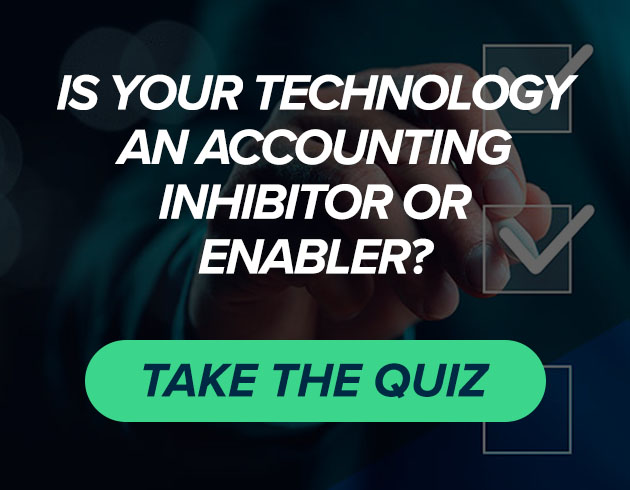3 Blockade Signals from Your Accounting System
Is the accounting software your company has relied on for years overdue for a change? Take our quiz to find out.
As an accounting and finance professional, you know how essential your accounting software is to help your organization function. You may even wonder how you would be able to operate without this technology. But it’s also possible that the system you have relied on for years – even decades – is also the same one giving you headaches and causing you to ponder if it’s time for a change.
Sure, you may be happy to have a system that automates recurring tasks, and it certainly beats those complicated spreadsheets sitting on someone’s hard drive. But could your current system actually be holding your accounting team back from achieving its best performance, keeping them from cranking out those crucial deliverables in a timely fashion for leadership? How do you know if your technology is a roadblock for your team, and your organization?
Here are three accounting system indicators that can signal its end of useful life for your organization:
- Your closing process cannot be improved. The closing process is stressful enough, but when your system runs slow, locks up or presents data inaccuracies, the inevitable delays and frustrations experienced by your accounting team and the leadership who depend on the results translates into cost. There’s the cost associated with missed opportunities, the cost of your team’s time and the cost of attrition, as top talent migrate to organizations that prioritize Next Generation ERP solutions.
- You’re at risk. Perhaps you’ve already received notice that your legacy system is approaching end-of-life or that new updates will not include functionality enhancements. Users of Microsoft NAV 2018, for example, saw mainstream support end on January 10, 2023. By continuing to run a deprecated version of your accounting system, your business is more vulnerable, leaving the sensitive data of your organization, your vendors and your clients susceptible to threats.
- You’re not able to innovate. Maybe you’re looking to automation to overcome hiring and retention challenges. Maybe you’ve been tasked with figuring out how to do more with less. After conferring with your technology advisor, you discover that newer technologies, like robotic process automation (RPA), machine learning (ML) and artificial intelligence (AI), are cost-prohibitive or simply not compatible with your aging system.
There’s so much more to consider when you think about the current state of your accounting software, outside of these three indicators. So, how can you confidently identify that your accounting system is holding your team back? Take the quiz, “Is Your Technology an Accounting Inhibitor or Enabler?” and see if your current technology is the long-term system to achieve your strategic goals.





